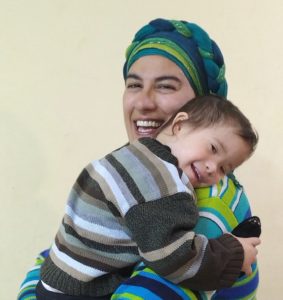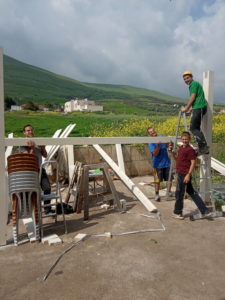
Parents not allowed in schools??? No, this is not okay.
I’ve been so glad that my three year old has been able to be home since March with us. He’s doing so well in all
Never miss a new post. Subscribe below to
receive all new posts directly to your inbox.

I’ve been so glad that my three year old has been able to be home since March with us. He’s doing so well in all
Nine years ago this week, we arrived in Israel with eight of our children (one was waiting at the airport to greet us), ages 2

From the time that we shared our plan to move to northern Israel, almost every single person has asked, “What about schools/special ed services?” Great
About ten weeks ago, we became the owners of three Pekin ducks, two females and one male! We had visions of fresh eggs and baby

Recently we had our final meeting with our foster care social worker. She was the one who did our intake application and interviews, she was

This morning my husband and I took our kids to the Kineret (Sea of Galilee) for an early morning outing. It was so lovely. The

I was upstairs on my porch when I heard loud yelling close by. I peered over my railing and saw a man screaming at my
Yesterday I drove my seventeen year old son to the bus station. He returned to his yeshiva, this time as a dorming student. Today I’ll

My family was discussing what aspects of this quarantine period they appreciate, and here is some of what they shared: no rushing, being able to

Since moving a week and a half ago, we’ve been super busy. The days are full, but as busy as we’ve been, it’s been enjoyable